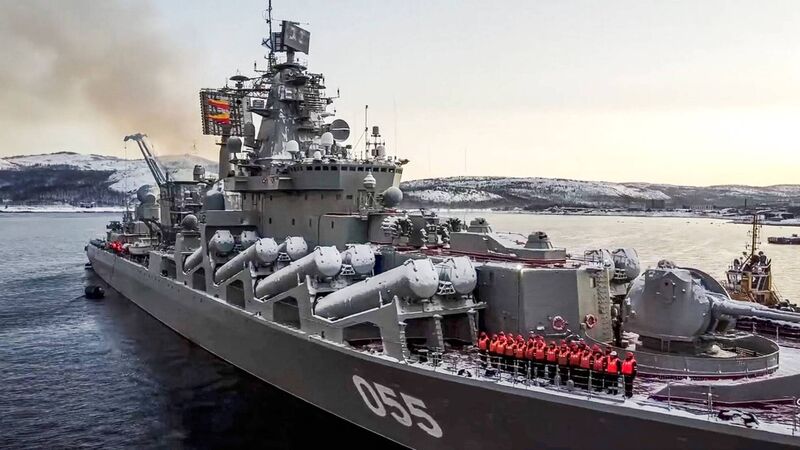Russian military exercises off Irish coast 'absolutely routine'

The Russian navy's missile cruiser Marshal Ustinov. Plans by Russia to hold military exercises off the Irish coast were 'absolutely routine', Irish aviation officials have said. Picture: Russian Defence Ministry Press Service via AP
Plans by Russia to hold military exercises off the Irish coast were "absolutely routine", Irish aviation officials have said.
The Oireachtas transport committee heard from the Irish Aviation Authority (IAA) after Russia agreed to move planned military drills off the south-west coast.










